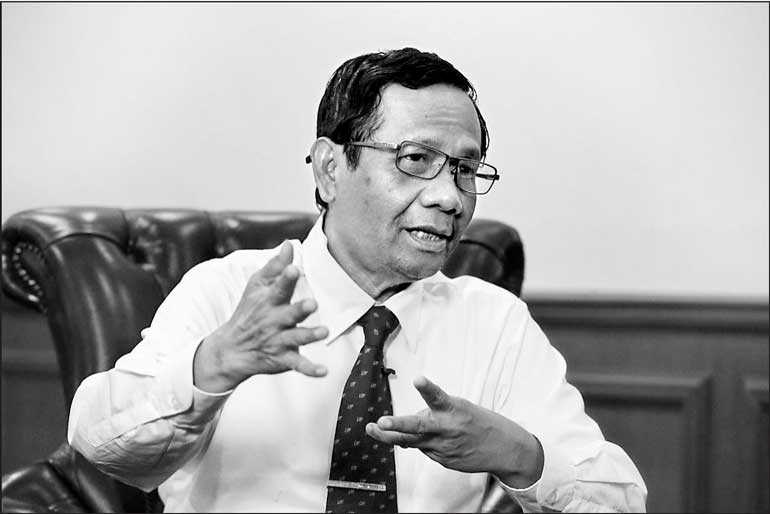Friday Feb 20, 2026
Friday Feb 20, 2026
Saturday, 28 December 2019 00:04 - - {{hitsCtrl.values.hits}}

Indonesian Chief Security Minister Mohammad Mahfud MD gestures as he talks during an interview at his office in Jakarta, Indonesia, 26 December - Reuters
JAKARTA (Reuters): Indonesia plans to revive a ‘truth and reconciliation’ commission to bring closure over past human rights violations, including the killing of hundreds of thousands of people in 1965, a senior minister told Reuters on Thursday.
A similar commission began work in 2004 to look into abuses such as those during the three decade rule of authoritarian ruler Suharto, whose fall in 1998 began a transition to democracy in the world’s fourth most populous country.
But that commission was scrapped after a Constitutional Court ruling against its provision that not all cases would have to be tried in a court.
New chief security minister Mahfud MD told Reuters that a law was being drafted to revive the commission with a provision that the parliament would decide whether any case should go to trial.
“The principle remains that human rights abuses need to be tried in court,” he said.
Where there was insufficient evidence, there could still be reconciliation, he said.
Among 12 cases that would be reviewed would be the 1965 anti-communist pogrom, he said.
Historians and activists say at least 500,000 people were killed from late 1965 after then-general Suharto took power following an abortive communist coup. A million or more people were jailed, suspected of being communists.
Other cases to be investigated include conflict in West Papua in 2001 that left four killed and five missing, and the shooting of students in 1998 amid riots that brought about Suharto’s fall.
“What’s most important is that the law needs to bring closure. Don’t let this drag,” said Mahfud, a former top judge who joined President Joko Widodo’s cabinet in October.
Hadi Sutjipto, coordinator for a group of victims of the 1965 pogrom or their families, welcomed the move as a step to reconciliation.
“Many of the older victims have died or are starting to die. They don’t harbour any vengeance, they just want their names to be restored,” he said.
But retired civil servant Maria Catarina Sumarsih, whose son Wawan was shot dead in late 1998 while helping a wounded student, said justice mattered more than reconciliation.
“I don’t think the perpetrators would want to show up to the truth and reconciliation commission to say that they committed violations, that they shot Wawan, for instance,” Sumarsih said on Friday.
“I don’t trust the government, I’ve been lied to for 21 years.”